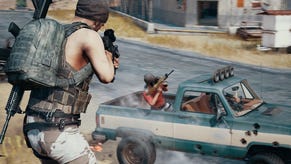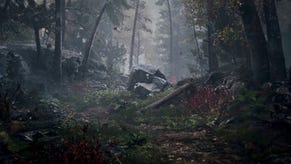Playerunknown's Battlegrounds is easy in ways other games are hard
In defence of cowardice
Playerunknown's Battlegrounds [official site] is about being dropped onto an island with nearly 100 other people, and then fighting til there is only one person left alive. It's a terrifying scenario and I have never won a single round of it - and yet, I wouldn't call it a hard game. In fact, it is easier than most of its contemporaries in not only the survival game genre, but multiplayer first-person shooters at large.
I think the first time I played Battlegrounds, I survived for around half an hour and placed 25th or so. In the 40-50 rounds I've played since, I have consistently finished in the top 20. Finishing in the top ten is semi-regular. These aren't winner winner chicken dinner results, but if I were to drop into a game of Overwatch right now - a game I played for a few weeks near release and not since - there's not a chance in hell that I'd finish in the top 20% of players on the server. Same for Counter-Strike, a game I've played in its various incarnations for a thousand hours. This has nothing to do with the overall larger player numbers in Plunkbat.
If you're joining in during Battlegrounds moment in the spotlight, you're possibly thinking to yourself: yeah, but that doesn't count. Let me explain how to do this for people who don't play the game, before I loop back and try to explain why this is significant even if it hasn't yet lead me to victory. Here is my one paragraph guide for being perfectly serviceable at Playerunknown's Battlegrounds:
Jump off the cargo plane on which you begin each round only when it is near the end of its journey across the island. Not at the very end, when it will push all the stragglers off together, but ten or twenty seconds before that. Speed towards the ground as fast as possible. While parachuting, scan the horizon for any other nearby players. There won't be many, because most people jump off early. Visit small houses in search of weapons. Avoid obvious landmarks like the military base, power station and other larger buildings, since players will be attracted by the superior loot found there. Move quickly to each new safe zone on the map as the circle closes inwards. Use vehicles whenever possible until the circle is very small.
That's about it. In short, how do you place in the top 25 percent of players? By avoiding everyone.
By playing this way, you're still engaging with the game's systems. Brendan 'Playerunknown' Greene defines Battlegrounds by three distinct subgames: the air game, in which you make decisions about when to skydive from the plane and where to land; the loot game, where you gather weapons and armour from locations spread across the map and make choices about which to use; and the combat game, where you fight with other players. It's only this last third that you're really avoiding by playing this way - and even then, not really. You're still going to be scanning the horizon for other players, moving slowly in and around buildings, and getting into occasional, unavoidable firefights.
I think some might argue this way of playing doesn't 'count' because it doesn't necessarily make it easier to win. By playing aggressively in the early game, other players will often end up with better equipment. The guns and armour discovered from high-population locations and scavenged from fallen enemies can provide an advantage in the closing minutes of a game, where players are forced together in a relatively small area with few places left to hide. I think the gains are marginal though: visit enough small, abandoned houses in out of the way places and you can accrue an arsenal just as good as those you'd find in a single, large building like a school or hospital.
I say that as someone who has never won using this strategy. Battlegrounds doesn't make it easy for people to win, and if winning is your only goal then maybe this is all meaningless to you. I don't have that kind of expectation from the game (yet). What Battlegrounds does give me is a broad enough spectrum of risk versus reward that I have almost total control over the arc of my emotional experience.
Want to get straight into the thick of it and enjoy an immediate adrenaline rush by running towards guns with enemy players right alongside? By all means, go for it. Want to play it safe and turn the next thirty minutes of your life into a slow-burn of tension, culminating in a heart-pounding battle where you've got something substantial to lose and victory feels as if it's just within your grasp? Yep, you can have that, it's your choice every time. Want to oscillate between these two states within a single round, starting in a rush and then cooling off again, or vice versa? That's fine, too.
I can think of no other multiplayer game which does this. First-wave survival games like DayZ are too open to make action a player's choice; action is more often just something that happens to you after potentially hours of nothing happening. It is boring and then extremely tense and often you can't control when either state happens, even if you head towards the towns. More traditional multiplayer games like Overwatch and Counter-Strike thrust you into the fray and demand constant frontline action, and even with game modes that narratively support quieter play styles (protect the hostages, etc.), the community stamps it out by labelling it "camping".
The only time I've ever felt in control of my own arc in multiplayer games is when I've been really good at them. After years of practice with something like Counter-Strike 1.6 or Team Fortress 2, I knew I had it in me to perform a certain way and create the experience I wanted to have. Yet this only ever lead to terrible frustration, as I inevitably had bad games and bad days and bad weeks and knew it was because I was underperforming.
With the exception of winning, I feel as if I have a huge amount of control over my experience in Battlegrounds, even after a relatively short amount of time with it. There's still plenty for me to get good at in the game; it is not, on the whole, 'easy'. I'm still learning how to handle the game's umpteen different assault rifles. I'm gradually getting better at moving across its terrain, using ridges to break sightlines and avoid sniper fire. I'm learning when to be cautious and when to be bold in the late game, when hiding is no longer an option. I think I'll one day get my chicken dinner. But I appreciate the game most for letting me choose the emotional journey of any round I play, whether I want to throw caution to the wind, or whether I want to take a boat out to sea and float out there, alone and out of reach for 40 minutes, crossing my fingers that the last player slips and falls to their death without my intervention.






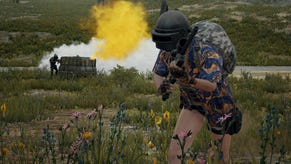
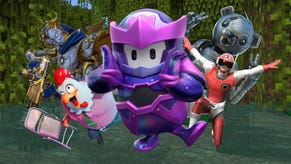

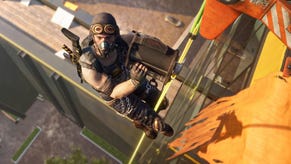

.jpg?width=291&height=164&fit=crop&quality=80&format=jpg&auto=webp)
